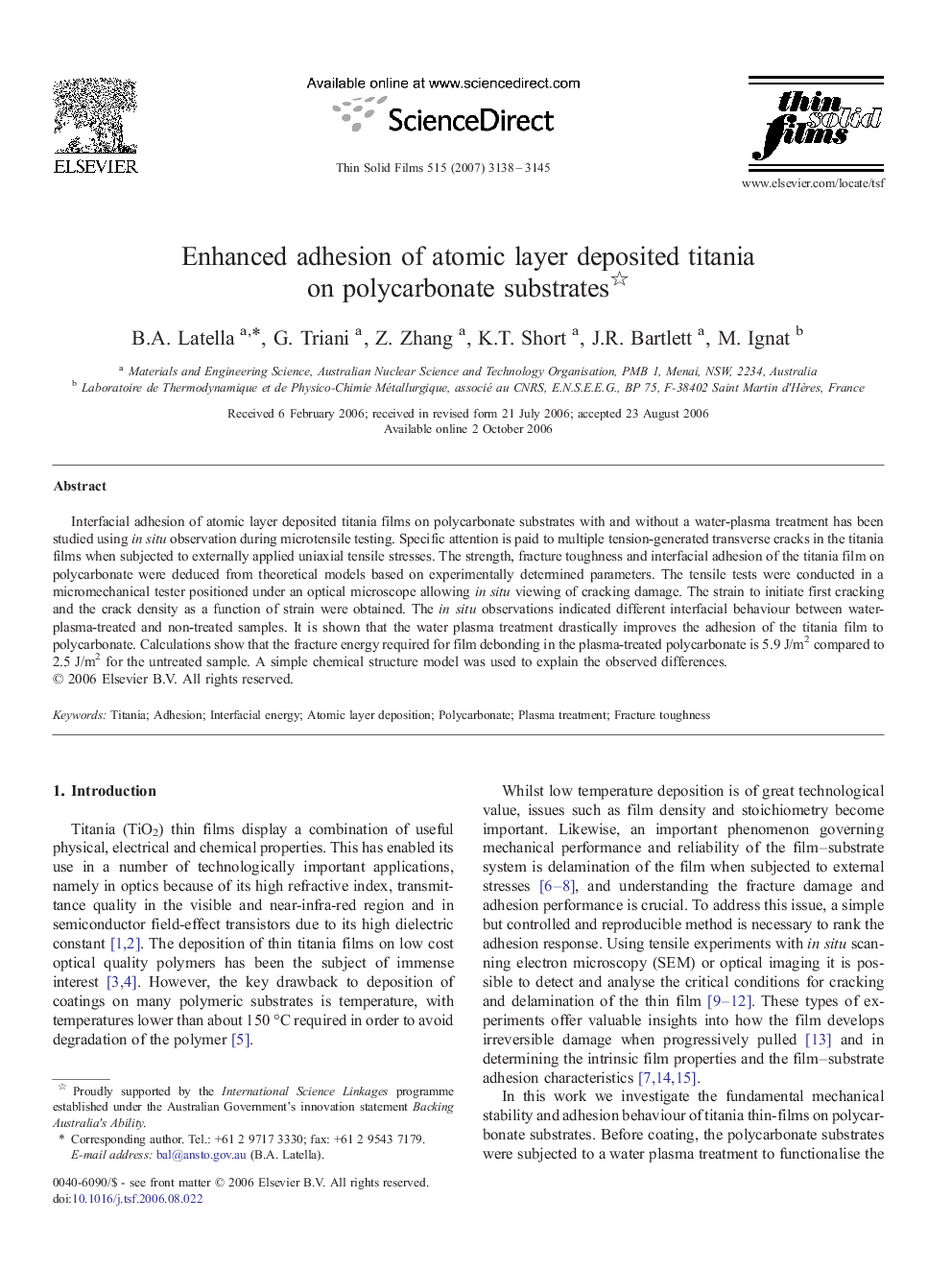| Article ID | Journal | Published Year | Pages | File Type |
|---|---|---|---|---|
| 1674736 | Thin Solid Films | 2007 | 8 Pages |
Interfacial adhesion of atomic layer deposited titania films on polycarbonate substrates with and without a water-plasma treatment has been studied using in situ observation during microtensile testing. Specific attention is paid to multiple tension-generated transverse cracks in the titania films when subjected to externally applied uniaxial tensile stresses. The strength, fracture toughness and interfacial adhesion of the titania film on polycarbonate were deduced from theoretical models based on experimentally determined parameters. The tensile tests were conducted in a micromechanical tester positioned under an optical microscope allowing in situ viewing of cracking damage. The strain to initiate first cracking and the crack density as a function of strain were obtained. The in situ observations indicated different interfacial behaviour between water-plasma-treated and non-treated samples. It is shown that the water plasma treatment drastically improves the adhesion of the titania film to polycarbonate. Calculations show that the fracture energy required for film debonding in the plasma-treated polycarbonate is 5.9 J/m2 compared to 2.5 J/m2 for the untreated sample. A simple chemical structure model was used to explain the observed differences.
